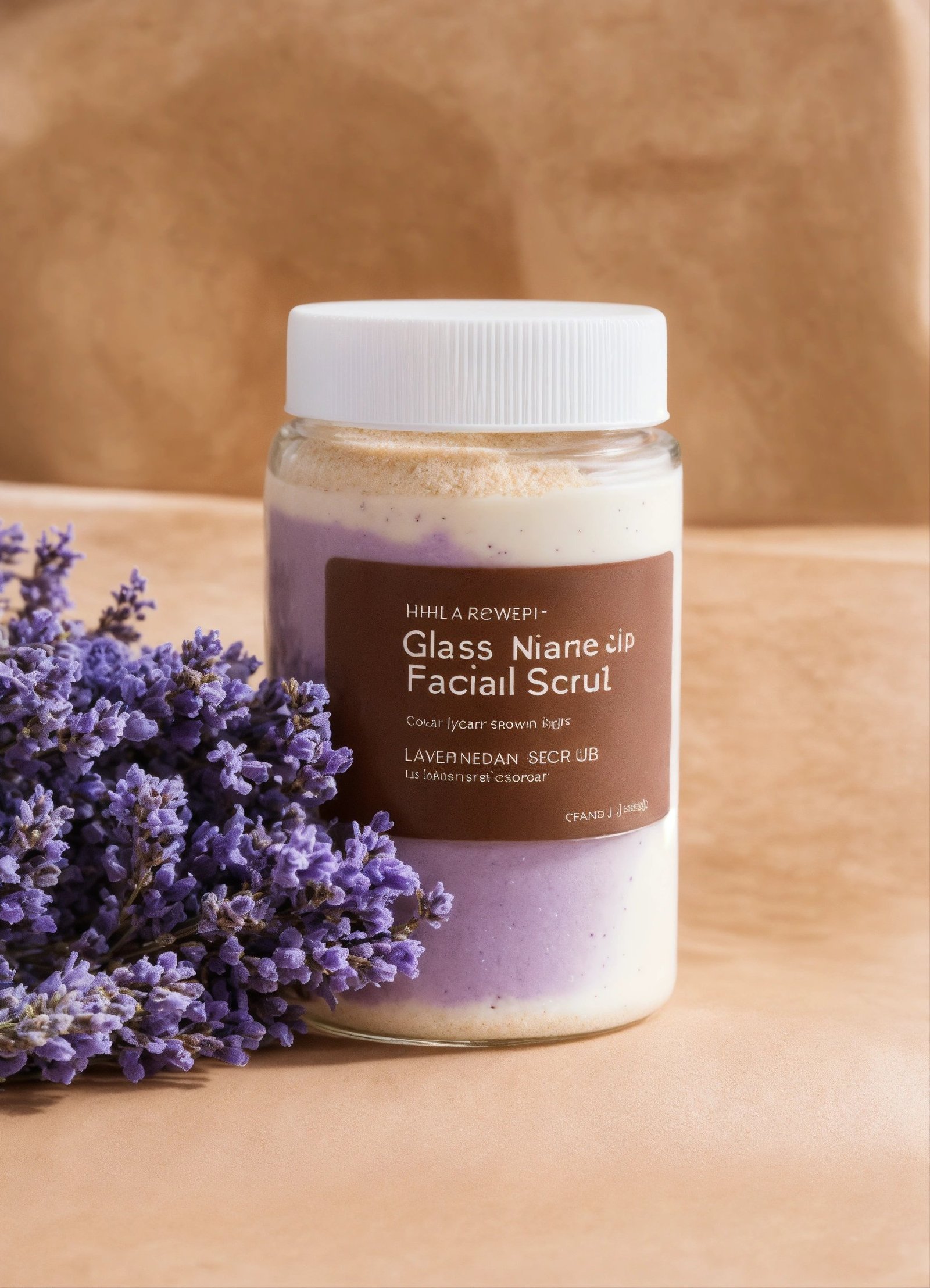Best exfoliator for face :Exfoliation is a key step in any skincare routine, crucial for maintaining healthy, radiant skin. If you’re looking for the best exfoliator for your face, you’ve come to the right place. In this comprehensive guide, we’ll explore the importance of exfoliation, different types of exfoliators, how to choose the right one for your skin type, and our top recommendations. Let’s dive in!
Table of Contents
ToggleWhy Exfoliation is Important
Exfoliation is the process of removing dead skin cells from the surface of your skin. Over time, these dead cells can accumulate, leading to a dull complexion, clogged pores, and uneven texture. Here’s why regular exfoliation is essential:
- Promotes Cell Renewal: Exfoliating encourages the growth of new skin cells, which can help improve your skin’s texture and tone.
- Unclogs Pores: By removing dead skin cells and debris, exfoliation helps prevent clogged pores, reducing the likelihood of acne and breakouts.
- Enhances Product Absorption: A clean, exfoliated face allows your skincare products—like serums and moisturizers—to penetrate better, maximizing their effectiveness.
- Improves Circulation: The physical act of exfoliating can stimulate blood flow, promoting a healthy, vibrant complexion.
- Boosts Radiance: Regular exfoliation helps to reveal the fresh, youthful skin underneath, giving you that coveted glow.
Types of Exfoliators
There are two primary types of exfoliators: physical and chemical. Each has its benefits and ideal applications depending on your skin type and concerns.
Also Read: best hydrogen water bottle
1. Physical Exfoliators
Physical exfoliators contain small, gritty particles that manually scrub away dead skin cells. Common forms include:
- Scrubs: These often contain sugar, salt, or ground nuts. They provide immediate results but can be abrasive if used too frequently.
- Exfoliating Tools: Items like facial brushes, sponges, and gloves can also serve as physical exfoliators. They can enhance your scrubbing process but should be used gently to avoid irritation.
Best for: Normal to oily skin types, or anyone looking for immediate texture improvement.
2. Chemical Exfoliators
Chemical exfoliators use acids or enzymes to dissolve dead skin cells without the need for scrubbing. Common types include:
- Alpha Hydroxy Acids (AHAs): These are water-soluble acids derived from fruits and milk. They are effective for dry or sun-damaged skin. Common AHAs include glycolic acid and lactic acid.
- Beta Hydroxy Acids (BHAs): Oil-soluble acids that penetrate deeper into pores. Salicylic acid is a popular BHA known for its acne-fighting properties.
- Enzymatic Exfoliants: Derived from fruits like papaya and pineapple, these gentle exfoliants break down dead skin cells without irritation.
Best for: Sensitive, dry, or acne-prone skin types.
How to Choose the Best Exfoliator for Your Face
Selecting the right exfoliator involves understanding your skin type and specific needs. Here are some tips:
1. Identify Your Skin Type
- Oily Skin: Look for exfoliators containing BHAs like salicylic acid, which can help unclog pores and reduce oiliness.
- Dry Skin: Opt for AHAs like glycolic or lactic acid, which can hydrate while exfoliating.
- Sensitive Skin: Choose gentle enzymatic exfoliators or mild physical scrubs with soft particles.
- Combination Skin: A balanced approach can work; try alternating between AHAs and BHAs.
2. Consider Your Concerns
- Acne-Prone Skin: BHAs are your best bet. They penetrate pores and help control breakouts.
- Hyperpigmentation or Dullness: AHAs can brighten your complexion and even out skin tone.
- Fine Lines and Wrinkles: Look for products with glycolic acid, as they can help improve texture and reduce signs of aging.
3. Read Labels Carefully
Look for exfoliators free of harsh or irritating ingredients, especially if you have sensitive skin. Avoid products with microbeads, as they can harm the environment.
4. Patch Test New Products
Always patch test a new exfoliator on a small area of your skin to check for reactions before applying it to your face.
How to Exfoliate Your Face
Once you’ve chosen the right exfoliator, it’s essential to know how to use it properly for the best results. Here’s a step-by-step guide:
Step 1: Cleanse Your Face
Start with a gentle cleanser to remove dirt, oil, and makeup. This prepares your skin for exfoliation.
Step 2: Apply the Exfoliator
- For Physical Exfoliators: Take a small amount and gently massage it onto damp skin in circular motions. Avoid applying too much pressure to prevent irritation.
- For Chemical Exfoliators: Apply a thin layer to clean, dry skin, using your fingertips or a cotton pad. Follow the product instructions regarding how long to leave it on.
Step 3: Rinse Thoroughly
For physical exfoliators, rinse your face with lukewarm water until all product is removed. For chemical exfoliators, follow the product guidelines for rinsing or leave-on time.
Step 4: Moisturize
After exfoliating, apply a soothing moisturizer to hydrate and replenish your skin. This step is crucial, especially after using stronger chemical exfoliants.
Step 5: Frequency
Limit exfoliation to 1-3 times a week, depending on your skin type and the strength of the product. Over-exfoliating can lead to irritation, redness, and sensitivity.
Top Recommendations for the Best Exfoliators for Face
Now that you know how to choose and use exfoliators, here are our top picks across different categories:
1. Dermalogica Daily Microfoliant
Type: Physical/Chemical
Best for: All skin types
This unique rice-based powder transforms into a creamy exfoliating paste when mixed with water. It combines physical exfoliation with enzymes and salicylic acid to brighten and smooth skin.
2. Paula’s Choice Skin Perfecting 2% BHA Liquid Exfoliant
Type: Chemical (BHA)
Best for: Oily and acne-prone skin
This cult-favorite product is lightweight and penetrates deep into pores, making it perfect for unclogging and reducing breakouts.
3. Drunk Elephant T.L.C. Sukari Babyfacial
Type: Chemical (AHA/BHA)
Best for: Dull, uneven skin
This powerful mask features a blend of AHAs and BHAs, providing a professional-quality facial at home. It brightens, smooths, and improves overall skin texture.
4. Fresh Sugar Face Polish Exfoliator
Type: Physical
Best for: All skin types
This gentle scrub uses real brown sugar to exfoliate while nourishing the skin with essential oil and nutrients. It’s hydrating and leaves your skin feeling soft.
5. The Ordinary Lactic Acid 5% + HA
Type: Chemical (AHA)
Best for: Sensitive skin
This mild exfoliator contains lactic acid and hyaluronic acid, providing gentle exfoliation and hydration. It’s an excellent choice for those new to chemical exfoliants.
6. Tatcha Rice Polish Foaming Enzyme Powder
Type: Physical/Chemical
Best for: All skin types
This luxurious powder exfoliator combines Japanese rice bran and papaya enzymes for gentle exfoliation. It transforms into a creamy foam, leaving skin smooth and radiant.
Frequently Asked Questions
1. How often should I exfoliate my face?
Typically, exfoliation should be done 1-3 times a week, depending on your skin type and the product used. Over-exfoliating can lead to irritation.
2. Can I use both physical and chemical exfoliators?
Yes, many people find that alternating between the two types works well. However, be cautious not to overdo it.
3. Is exfoliation safe for sensitive skin?
Yes, but choose gentle products specifically formulated for sensitive skin, and avoid physical scrubs with harsh particles.
4. Can exfoliating help with acne scars?
Exfoliation can improve skin texture and fade acne scars over time, particularly with products containing AHAs or BHAs.
5. Should I exfoliate if I have active acne?
It’s best to avoid aggressive physical exfoliants if you have active acne. Instead, opt for a gentle chemical exfoliant like salicylic acid.
Conclusion
Finding the best exfoliator for your face is essential for achieving and maintaining healthy, radiant skin. By understanding the different types of exfoliators, identifying your skin type, and using the right products correctly, you can enjoy all the benefits of exfoliation. Remember to listen to your skin, adjust your routine as needed, and consult with a dermatologist if you have any concerns. With the right exfoliator in your skincare arsenal, glowing skin is just a scrub away!




